Affiliate disclosure: This post may contain affiliate links. Please see our Privacy Policy.
We spent years looking for the perfect off-grid compound, mostly because we didn’t have a lot of money to spend. Before we found our off-grid home we toured a lot of shacks that quite frankly needed to be burned to the ground. All of those homes were traditional “on-grid” homes with what the real estate agent called “potential.”
We quite simply didn’t have the money to buy a livable traditional home. Somehow, on that same budget, we had plenty to buy a spectacular off-grid compound on 30 acres of pure heaven and absolute privacy.

There’s something about moving off-grid that’s frightening to most people. And honestly, it was terrifying for us.
Isn’t living off-grid signing up for a life of hardship? When we finally found the perfect homestead, even though it fit within our limited budget, we almost walked away because we weren’t sure we could handle it.
We were already harvesting our own meat, cooking everything from scratch and doing just about everything we could think of to provide for ourselves. We weren’t afraid of hard work, but still, there was hesitation.
It’s precisely that hesitation that drives down the cost of off-grid homes across the country.
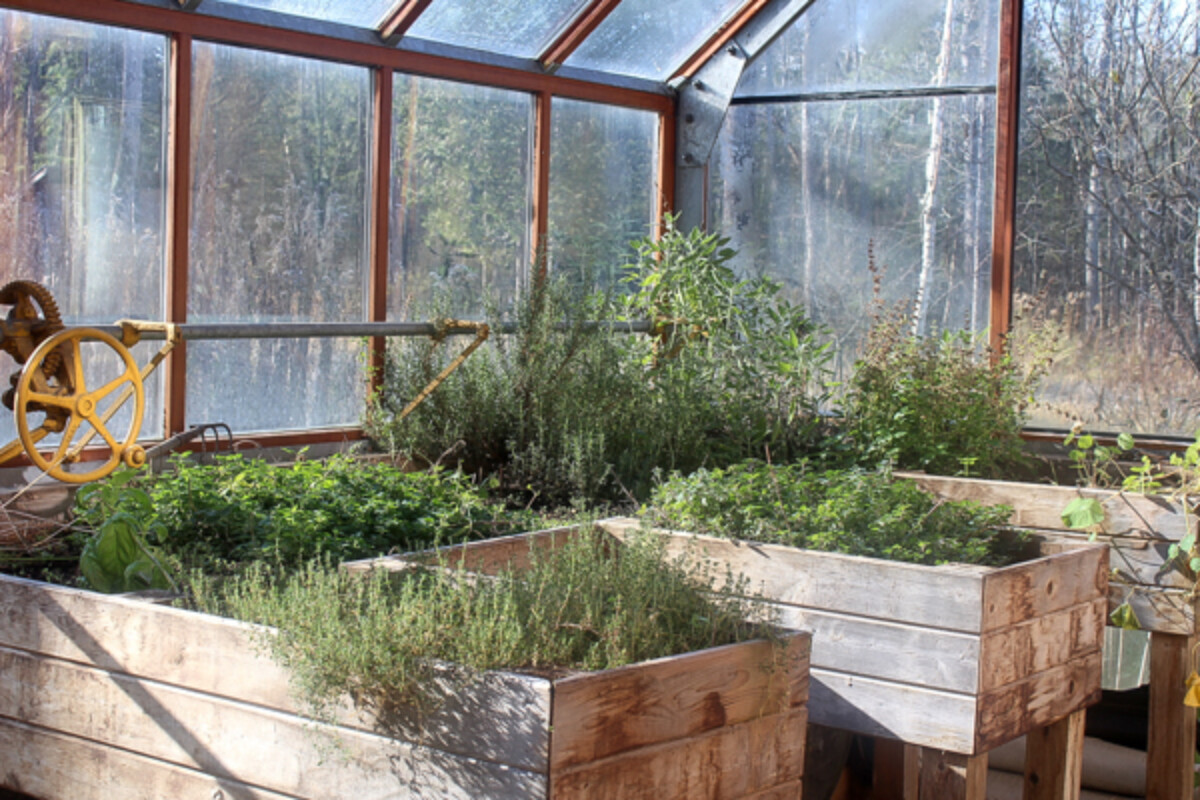
In reality, we found that off-grid living afforded us a lot of luxuries we never had living in a suburban home. Yes, it takes a lot of extra planning and effort, but if you’re willing to spend time (rather than money) to solve your problems, then off-grid is incredibly rewarding AND affordable.
After 5 years of living off-grid, and loving our new lifestyle, I still found that people just didn’t understand. I’d invite new friends over, and they’d try to find a polite way to ask if we had a real toilet.
They just didn’t get it. Off-grid doesn’t have to mean hardship.
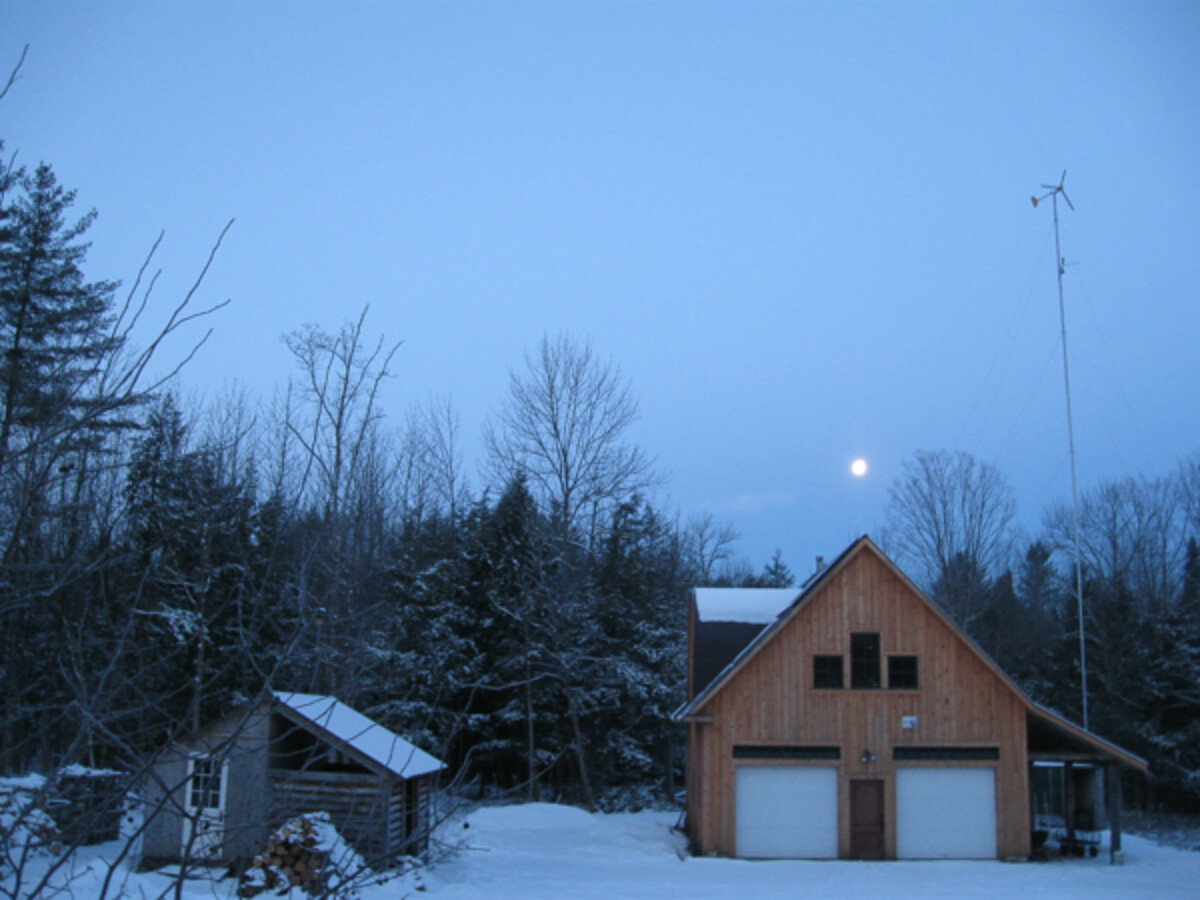
Trying to dispel those myths, I wrote a laundry list of off-grid luxuries we enjoy now, that we’d never dreamed possible until making the leap. Things we never could have afforded until we changed our lifestyle. Luxuries that only became possible when we started paying for things with our time and work, instead of money earned at a desk.
My goal was to encourage others to see that choosing a non-traditional lifestyle can be freeing, rather than enslaving. I wanted to show how much more you can have by being open to off-grid.
I was pretty taken aback when I got this comment, “This sounds prohibitively expensive for the average American. Kudos for you, but this isn’t attainable for most people.”
Not attainable? Really!?!?
We earn way less than the median US household. Our house is currently assessed at LESS than the median cost of a house in Vermont.
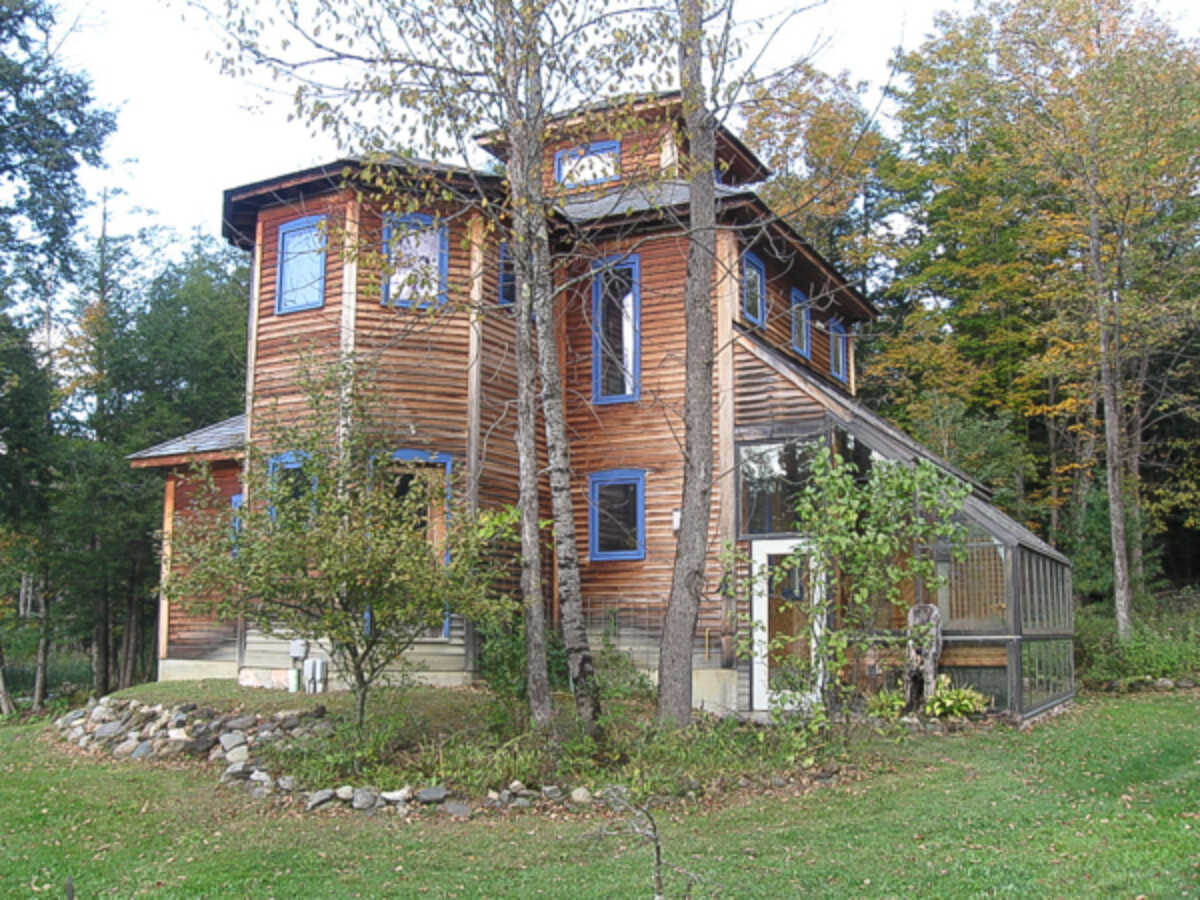
As a rule, off-grid properties cost much less than their on-grid counterparts. At least to purchase. But as my favorite science fiction author was fond of saying, “there ain’t no such thing as a free lunch.”
There is a cost to moving off-grid.
Time.
Maintaining this household takes a lot of time.
We don’t just get to flip a thermostat and have heat. Every bit of heat we have was hand-harvested and split with hours upon hours of labor throughout the warmer months.
Then in the colder months, it’s at least an hour a day to tend the boiler. Sure, the heat is free, except for our time.
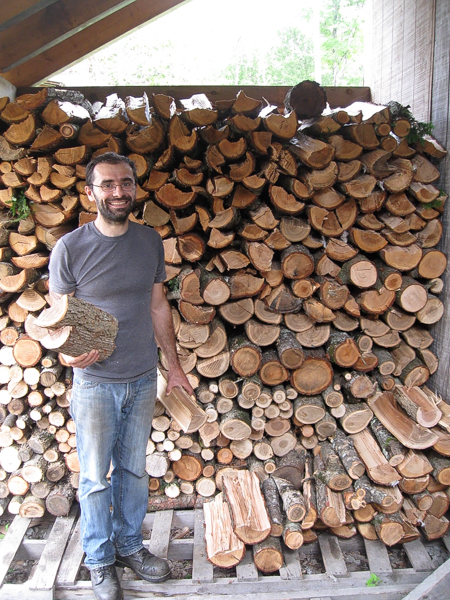
Beyond time, there’s the cost of convenience. Off-grid is awfully inconvenient sometimes.
We can’t just turn on appliances any time of the day or night. It seems strange, but you’ll never truly appreciate what a luxury it is to have toast at 2 am. Try it.
Next time you can’t sleep, make yourself some toast. Take a hot shower. Bake a cake.
Live it up now, because nighttime is off time when you’re off-grid.
Everything you do is somehow tied to the rhythm of the day.
In many ways, I suppose that comment was right. This is expensive. Expensive in time and expensive in convenience.
Perhaps they’re right, this “just isn’t attainable for the average American.” It is way too darn inconvenient.
For me and my family, it suits us just fine. I’d rather trade my desk job for time spent splitting wood any day. It all comes back to the very book that got us on this homesteading track in the first place: Your Money or Your Life.
There is a cost to everything, and you can spend money to accomplish your goals if you choose. You’re going to have to do something to earn that money, and these days it’s drudgery more often than not.
I’d rather choose to spend time. How you spend your minutes, hours and days is how you spend your life. I can think of no better way to spend my life than splitting wood or tending a garden.
That’s our true cost. That’s how we afford to live off-grid.
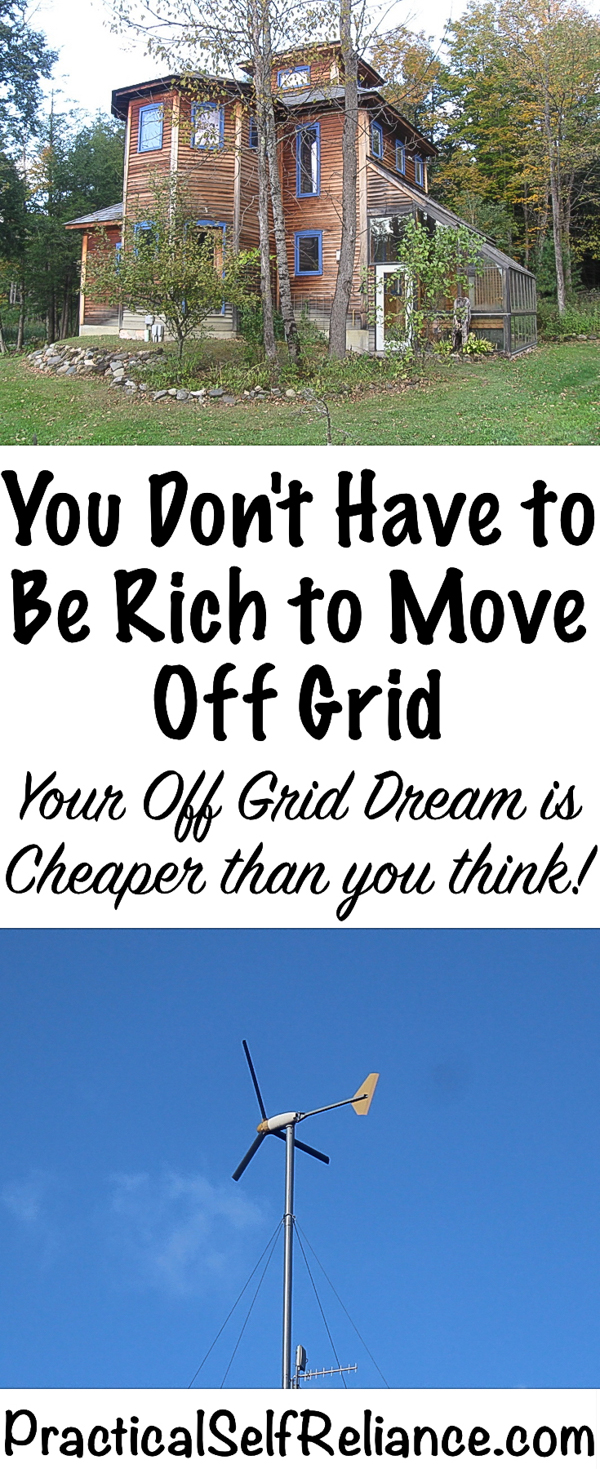
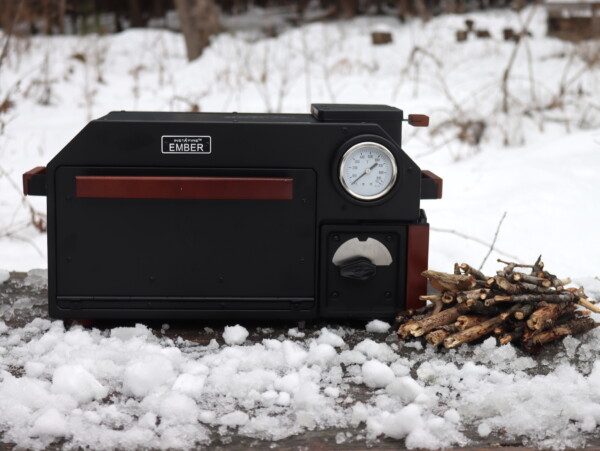
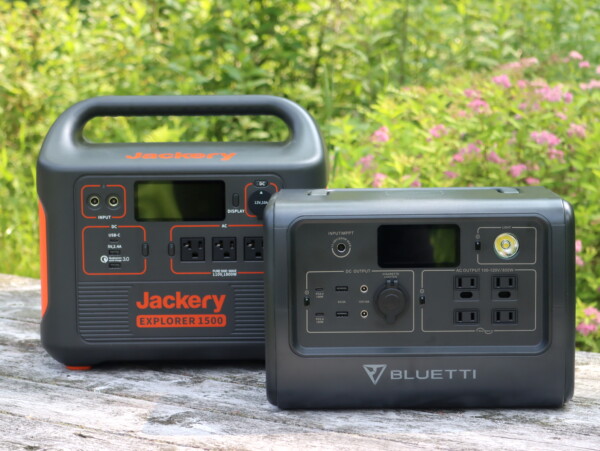
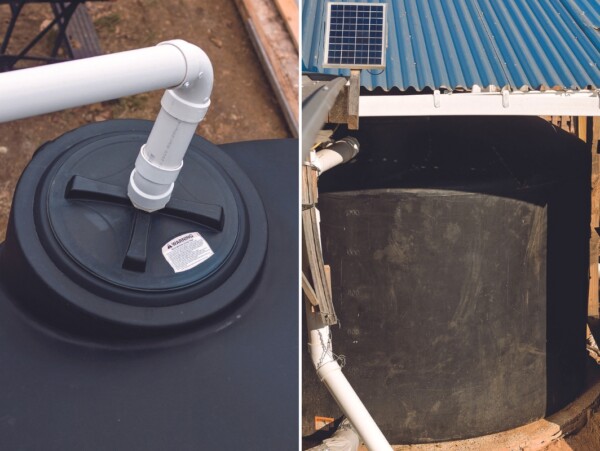
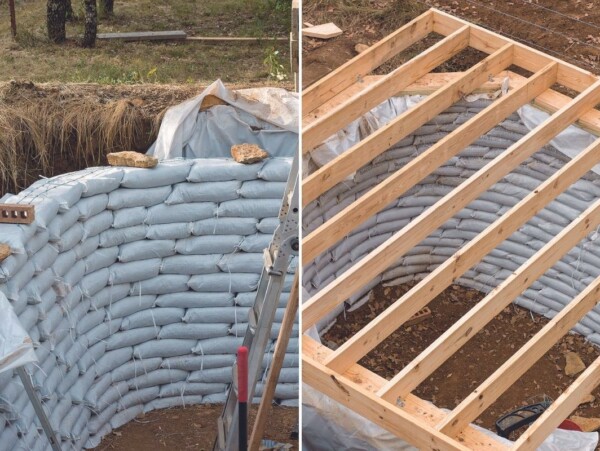









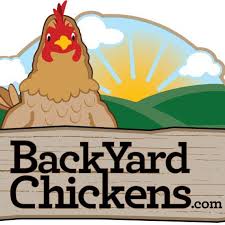
Where and how can a person find off grid homes in eastern Massachusetts ? I need to stay near elders who need occasional help but would not move from their home (over 60 community). Thank you. There are sooo many regulations in MA that it seems impossible. I really just want a tiny home, or to live in a camper; but with a barn for a few animals.
Have you had a chance to look at this post yet about finding off-grid homes for sale? https://practicalselfreliance.com/off-grid-homes-for-sale/
When we originally moved off grid in 2010, it was also onto a compound that had already been set up, but was in poor repair. After 10 years here, we’ve improved and remodeled, replacing the now over 40yo 12V solar system with a new 48V system. Except for not using high heat producing electrical appliances (mainly a clothes dryer), I can hardly see the difference between what we have now and what we had when we were on the grid. Topping up the batteries once a month doesn’t take much more time than I used to spend paying my electric bill. This is no sacrifice. I can have toast at night! With the advances in solar power and in energy saving lights and devices, I don’t understand why more people aren’t going off grid – or at least installing panels to supplement their grid-tied homes.
Hello, May I ask what you think a reasonable monthly income would be if you had no livestock and intended to grow a substantial part of your food? Say if there were 4 in the family. Thank you.
Charles
That depends on a lot of things. If you can pay for your home with cash, you’re in a good position. In Vermont, may things are income dependent. Property taxes in Vermont are high, but they vary by town, but they’re also scaled to income. Likewise with health insurance.
If you have no bills and you’re growing all your food, and from your other comments it sounds like you’re planning on not using a generator and cutting your own firewood…then what are you buying. Think it through. It really depends on your habits.
Do you like to go on drives? Then gas. If you’re growing your own food, that’s not exactly free. Tools, seeds, etc.
I don’t know…if we didn’t have a mortgage to pay, I think we could do fine on somewhere between $20 to $30k. It’s only that high because we have 2 small kids, we like to do improvements, and we’re saving up for a barn. Probably less if you weren’t planning any capital improvements and we weren’t due for so many repairs right about now.
I have a friend with 7 kids who lives on about $18k a year that he nets from a small dairy operation. If you want to learn a thing or two about frugality, check out http://northcountryfarmer.com/
Thank you!
It is our dream to live off grid on a homestead away from it all, but we have been discouraged because we thought we could never afford it. This gives me hope, but I still don’t know where to start finding off grid properties.